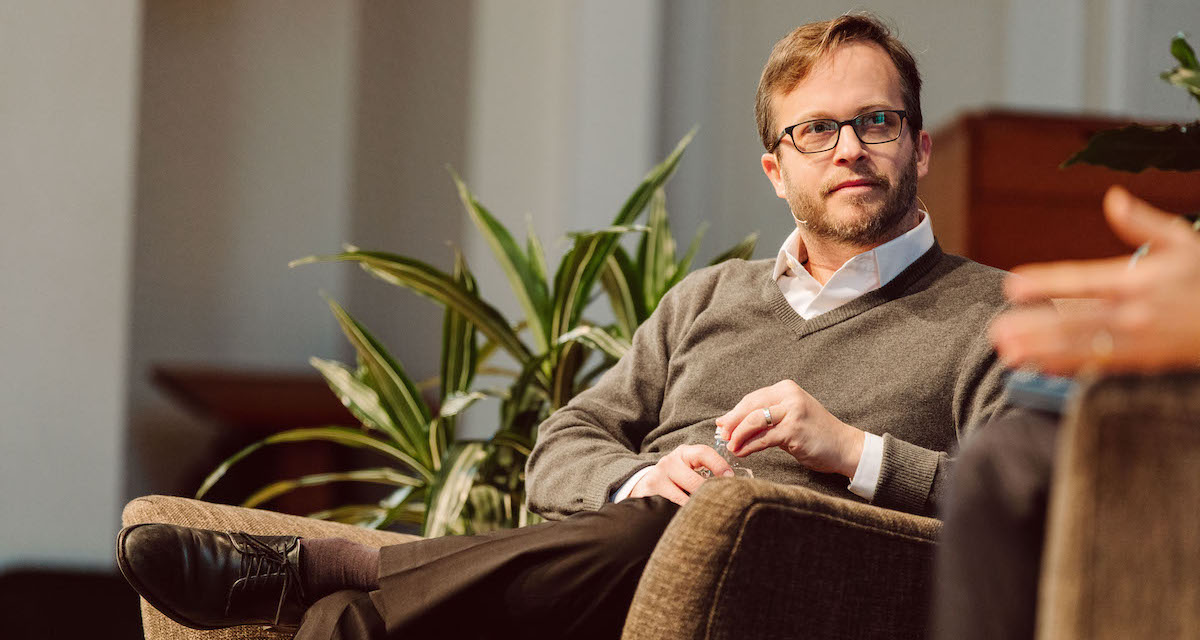Five Life Lessons from Christianity Today’s President
When a routine gymnastics flip went wrong, a broken neck dashed Timothy Dalrymple’s Olympic dream. The recently appointed president and CEO of Christianity Today, Dalrymple encountered his life- and career-changing accident in college, at a time when he felt sure of a certain future. Miraculously, muscle secured a shattered disc and a displaced vertebra endangering his spine, hindering the tragic fates of paralysis or death.
Though inevitably frustrated and introduced to life with chronic pain, Dalrymple knew it could have been worse. His perspective was transformed by the gift of full mobility, life and the words of Isaiah 48:10—”Behold, I have refined you, but not as silver; I have tried you in the furnace of affliction.”
So, he sought vocation in new venues—degrees in philosophy and religious studies at Stanford University, Princeton Theological Seminary and Harvard University, a career with Patheos and founding Polymath, a creative agency. Now at the helm of Christianity Today, Dalrymple took time to visit his beloved Boston and share with Gordon his insights on faith and work during a Conversation with the President today.
Live with bold faith. “My life is animated by the gospel story of Jesus Christ, by a profound commitment to follow him as the Lord of my life and to share the gospel with others . . . the gospel has so profoundly transformed me, it animates my faith and everything that I do, and compels me to share that with other folks.”
Discover your strengths. “Find out the things that you love and are good at, and think through how to monetize that . . . Don’t think as though your first career out of college is going to be your career for the rest of your life. Don’t put that kind of pressure on yourself.”
Do your homework. Do you want to be a respected Christian voice? Dalrymple’s top tip: “Make sure you’re able to represent well the history of Christian thought.” Before Dalrymple pursued a Ph.D., a professor encouraged him to dig deep into an M.Div. program—biblical languages, Church history, systematic theology—”so that I’d have a grounding in the Christian tradition.”
Engage thoughtfully and prayerfully in difficult conversations—especially politics. “Wouldn’t it be remarkable if Christians were known as the most charitable, the most thoughtful participants in political discussion?”
Immerse yourself in Christian communities, from mentors who marry faith with sophisticated thought, to peers who pursue intellect and sincere faith. “The time when I grew most in my faith was when I participated in Christian communities in college,” says Dalrymple. Finding admirable Christian professors and inspiring peers at Stanford University “was really transformative. And to worship together and learn together with a community like that and build those relationships was critical.”
 The Bell
The Bell